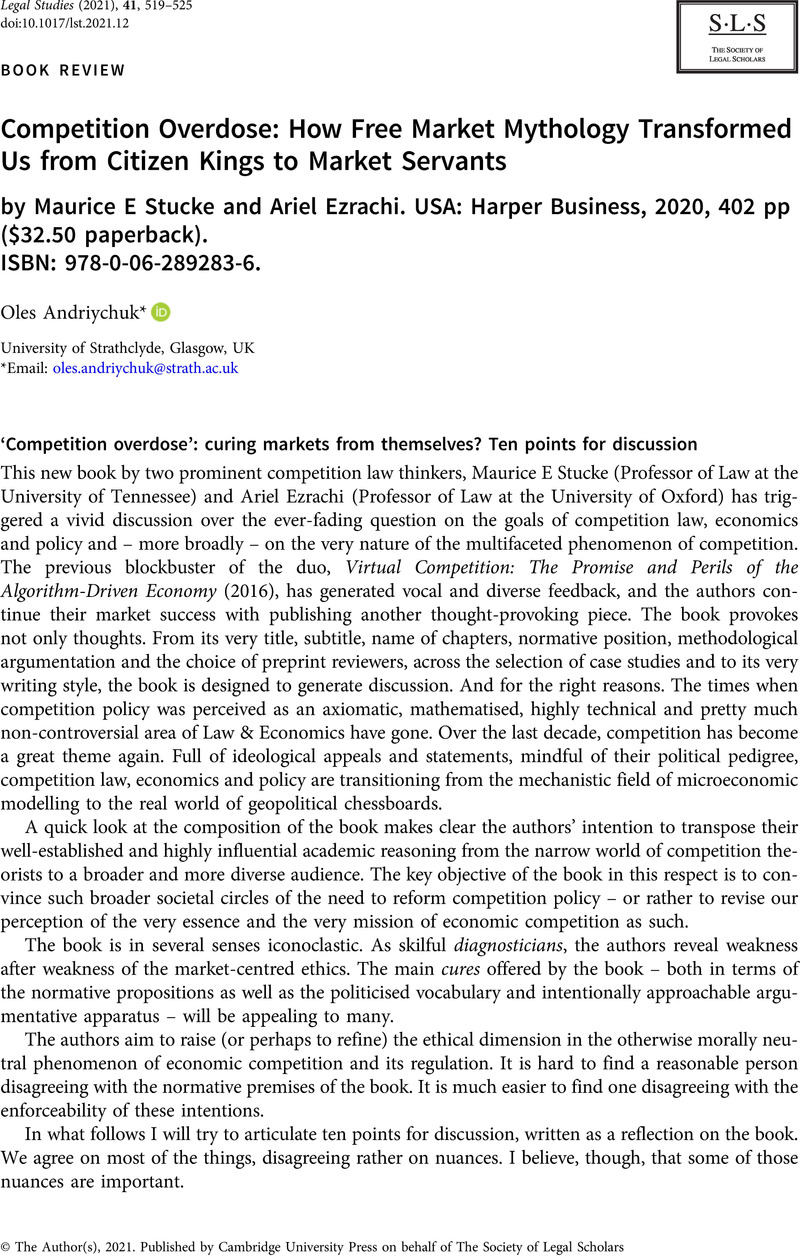No CrossRef data available.
Published online by Cambridge University Press: 05 April 2021

1 Stucke, ME and Ezrachi, A Competition Overdose: How Free Market Mythology Transformed Us from Citizen Kings to Market Servants (Harper Business, USA, 2020) p viiGoogle Scholar (emphases in the original).
2 Andriychuk, O The Normative Foundations of European Competition Law: Assessing the Goals of Antitrust through the Lens of Legal Philosophy (Edward Elgar, 2017) p 139CrossRefGoogle Scholar: ‘As Berdyaev claims, the “spirit emanates not only from the Deity but also from the primal pre-existential freedom, from the Ungrund”, […] revealing thereby the dialectical dynamism of freedom, composed of two antagonistic elements, which constantly collide. The Ungrund or the abyss “is prior to and indeed the source of being”. […] Freedom thereby is perceived as a partly created and partly spontaneous phenomenon’.